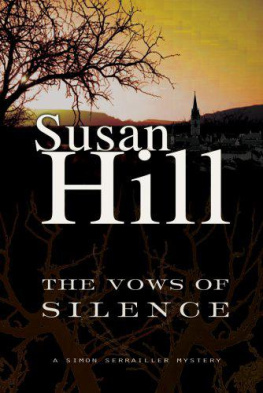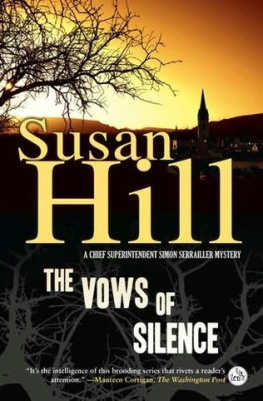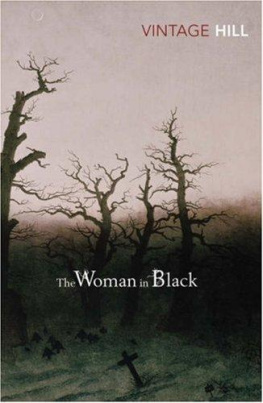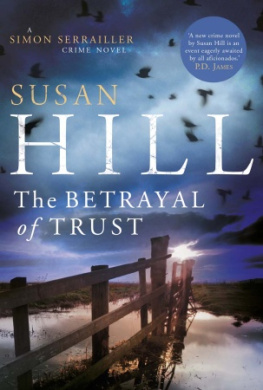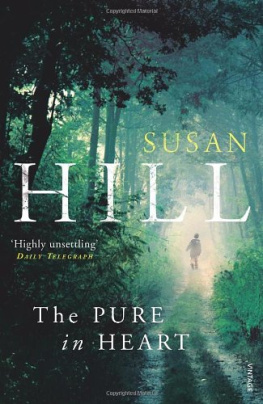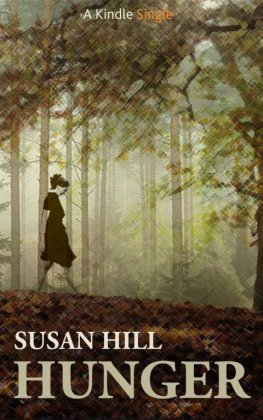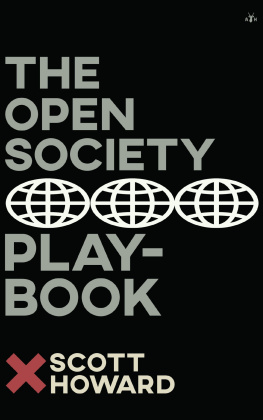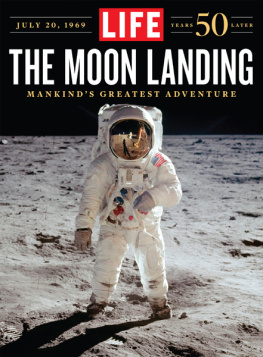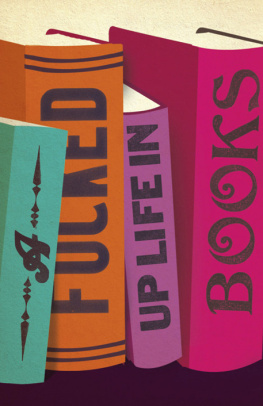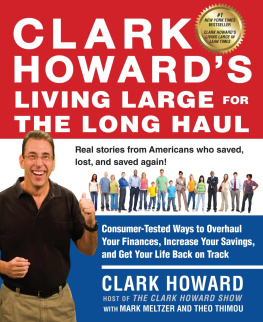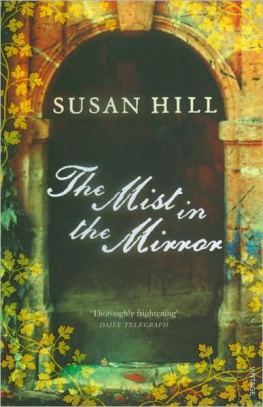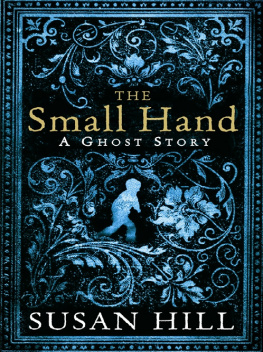A little jewel of a memoir that will be irresistible to any bookworm. Independent on Sunday
A totally beguiling, utterly persuasive, argument for re-immersing yourself in literatures past part memoir, part outpouring of affection for those Hill has loved Michael Grove, The Times
What a delightful book this is and so old-fashioned in approach almost to be trendy Trevor Royle, Herald
Hill is nicely opinionated throughout she is whimsical and intimate, scattering rhetorical questions and colloquial half-sentences beguiling Victoria Glendinning, Spectator
Hill holds little truck with notions of canon or hierarchies, instead viewing books and their authors with a learned, gossipy warmth. She understands that the best books make great companions, and this one is no exception. Claire Allfree, Metro
Pure pleasure Carla Carlisle, Country Life
An elegiac tone a lament for lost cultural habits John Sutherland, Literary Review
A mind-map of a novelist in her late 60s who has spent her life reading and writing books the autobiographical elements in the book are often delightful charming Ian Pindar, Guardian
An enjoyable meander, a genial pillow book of light wit and broad reading whose tone remains on the pleasantly whimsical side of erudition James Urquhart, Independent
A patchwork of literary musing, quotation and anecdote, the memoirs texture is wholesome and cosy Caroline Howitt, TLS
Personal, practical and anecdotal delightful the list itself is an idiosyncratic commingling of fiction, non-fiction and poetry Leo Robson, New Statesman
A light-hearted memoir using books as anchors on which to fasten life experiences. Funny, educational and occasionally surprising. Maria Jones, Catholic Herald
Delightful Hills opinion is worth hearing her range is all-embracing and can be read as an invitation to a writers, as well as a readers mind Mary Leland, Irish Examiner
Hill writes extensively and eloquently about her literary influences and preferences, as well as her thoughts about the process of writing a unique book Leah OHearn, Mslexia
SUSAN HILL was born in Scarborough and educated at grammar schools there and in Coventry, and at Kings College, London. She has been a professional writer for fifty years and is the author of thirty-seven books, including The Woman In Black and The Man In The Picture. She lives in a farmhouse in the North Cotswolds with her husband, Professor Stanley Wells. They have two daughters. Visit www.susan-hill.com.
Howards End is on the Landing
A YEAR OF READING FROM HOME
Susan Hill

To my friends pictured within.
This paperback edition published in 2010
First published in Great Britain in 2009 by
PROFILE BOOKS LTD
3A Exmouth House
Pine Street
London EC1R 0JH
www.profilebooks.com
Copyright Susan Hill, 2009, 2010
1 3 5 7 9 10 8 6 4 2
Typeset in Transitional by MacGuru Ltd
info@macguru.org.uk
Printed and bound in the UK by
CPI Bookmarque, Croydon, Surrey
The moral right of the author has been asserted.
All rights reserved. Without limiting the rights under copyright reserved above,
no part of this publication may be reproduced, stored or introduced into a
retrieval system, or transmitted, in any form or by any means (electronic,
mechanical, photocopying, recording or otherwise), without the prior written
permission of both the copyright owner and the publisher of this book.
A CIP catalogue record for this book is available from the British Library.
ISBN 978 1 84668 266 7
eISBN 978 1 84765 263 8

Starting Point
IT BEGAN LIKE THIS. I went to the shelves on the landing to look for a book I knew was there. it was not. but plenty of others were and among them I noticed at least a dozen I realised I had never read.
I pursued the elusive book through several rooms and did not find it in any of them, but each time I did find at least a dozen, perhaps two dozen, perhaps two hundred, that I had never read.
And then I picked out a book I had read but had forgotten I owned. and another and another. After that came the books I had read, knew I owned and realised that I wanted to read again.
I found the book I was looking for in the end, but by then it had become far more than a book. It marked the start of a journey through my own library.
Some people give up drink for January or chocolate for Lent, others decide to live for a year on just a pound a day, or without buying any new clothes. Their reasons may be financial (to save money), physical (to lose weight), or spiritual (to become more holy). I decided to spend a year reading only books already on my shelves for several reasons.
The journey through my own books involved giving up buying new ones, and that will seem a perverse act for someone who is both an author and a publisher. but this was a personal journey, not a mission. I felt the need to get to know my own books again, but I am not about to persuade other people to abandon the purchase of new ones.
I wanted to repossess my books, to explore what I had accumulated over a lifetime of reading, and to map this house of many volumes. There are enough here to divert, instruct, entertain, amaze, amuse, edify, improve, enrich me for far longer than a year and every one of them deserves to be taken down and dusted off, opened and read. A book which is left on a shelf is a dead thing but it is also a chrysalis, an inanimate object packed with the potential to burst into new life. Wandering through the house that day looking for one elusive book, my eyes were opened to how much of that life was stored here, neglected or ignored.
The start of the journey also coincided with my decision to curtail my use of the internet, which can have an insidious, corrosive effect. Too much internet usage fragments the brain and dissipates concentration so that after a while, ones ability to spend long, focused hours immersed in a single subject becomes blunted. information comes pre-digested in small pieces, one grazes on endless ready-meals and snacks of the mind, and the result is mental malnutrition.
(There were one or two caveats. I would borrow academic books from libraries and I would read some of the books sent by literary editors, for review.)
The internet can also have a pernicious influence on reading because it is full of book-related gossip and chatter on which it is fatally easy to waste time that should be spent actually paying close, careful attention to the books themselves, whether writing them or reading them.
Rationing it strictly gave me back more than time. Within a few days, my attention span increased again, my butterfly-brain settled down and I was able to spend longer periods concentrating on single topics, difficult long books, subjects requiring my full focus. It was like diving into a deep, cool ocean after flitting about in the shallows, Slow Reading as against Gobbling-up.
I did not begin my year of reading from home in order to save money, but of course that is what happened. I buy too many books, excusing impulse purchases on the vague grounds that buying a new paperback is better for me than buying a bar of chocolate. But that depends on the quality of the paperback. I wanted to reacquaint myself with old books and resist the pressure to buy something because it was new, because it was in the top twenty or shortlisted for the Booker Prize or even the Nobel, for that matter, or recommended by Richard and Judy or discounted, heavily promoted or chattered about on the internet. A friend joined a book club because she wanted to expand her literary horizons and left it because the only titles ever chosen were the latest hyped or shortlisted novels. There is no doubt that of the thousands of new books published every year many are excellent and some will stand the test of time. A few will become classics. But I wanted to stand back and let the dust settle on everything new, while I set off on a journey through my books.
Next page

